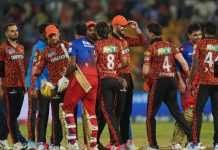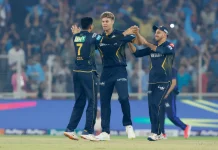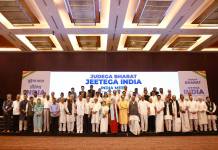Parliament disruptions are like traffic jams and there is chaos as MPs try to overtake from the wrong side or break traffic signals, says former Rajya Sabha member Javed Akhtar.
He also emphasises on the need to trust and respect each other to function in harmony.
“I drive on the left, you drive on the left and when you see the signal, you stop if you are a decent person. Is it morality? No. Because if you drive on the right side, either you will get hit or you will hit somebody, or you will create a traffic jam and also trap yourself,” he says.
These remarks find mention in the book “What After Money and Fame” in which author Sonia Golani through a series of in-depth conversations with some of the country’s luminaries, attempts to throw light on the measure of a life well lived.
In reply to her question on what citizens get by electing their representatives to Parliament as all they find is logjams and disruptions, Akhtar, whose tenure in the Upper House ended earlier this year, says, “Exactly!”
“All these are traffic jams. There is chaos because it’s like people in the Parliament are trying to overtake from the wrong side or trying to break traffic signals.”
He also speaks on a host of other things like how his experience in Parliament was, what awards mean to him, his views on films and music and how much money is enough.
Among other people whom Golani talks to in the book, published by Penguin Random House, are industrialist Adi Godrej, architect Hafeez Contractor, lawyer Harish Salve, Union minister Jayant Sinha and Infosys co-founder N R Narayana Murthy.
What lies beyond material triumph for these people? What is it that continues to motivate and sustain them? How much money do they think amounts to enough for individuals? What is the core philosophy of their life that has helped them achieve what they have?
Golani asks them questions such as these.
According to Godrej, his driving force has never been to make money as his company was a reasonable-size business when he joined and he had to make it grow.
“Even today, the constant thoughts in my mind are how do we grow, what strategy we need to adopt, etc., not because business is a source of personal finance or funding but because that’s good for the business,” he says.
Asked for his views on philanthropy, Godrej says, “One of the negatives of philanthropy in India is that too much is spent on religion, which is a waste in my opinion. I think when it goes into providing facilities and opportunities like education or healthcare, it adds a lot of value to society.”
For Contractor, designing came very naturally to him.
“When I was small, I used to design bikes, forts, guns and planes, not knowing that I was drawing plans and sections as per architectural terminology. It was plain fun and a good pastime for me.”
Salve rues that the media today has started setting the agenda for the political system. Politicians play to the gallery and of course media does the same, he says.
He feels that India right now is going through a very negative mindset and “if we don’t realise this soon enough and do something about it, we are going to pay a very dear price for it.”
Sinha considers politics to be a very difficult and demanding profession.
“People come to you with all kinds of demands and you are constantly in the media spotlight. For most people, there are very few rewards, and most often you are of service all the time while at the same time you are being criticised,” he says.
Peace of mind and bliss matter most to Narayana Murthy.
It can come in different forms to different people, but a good sleep every night and peace of mind for as much time as possible during the day is the mark of a lucky individual, he tells Golani.
(With inputs from PTI)


















